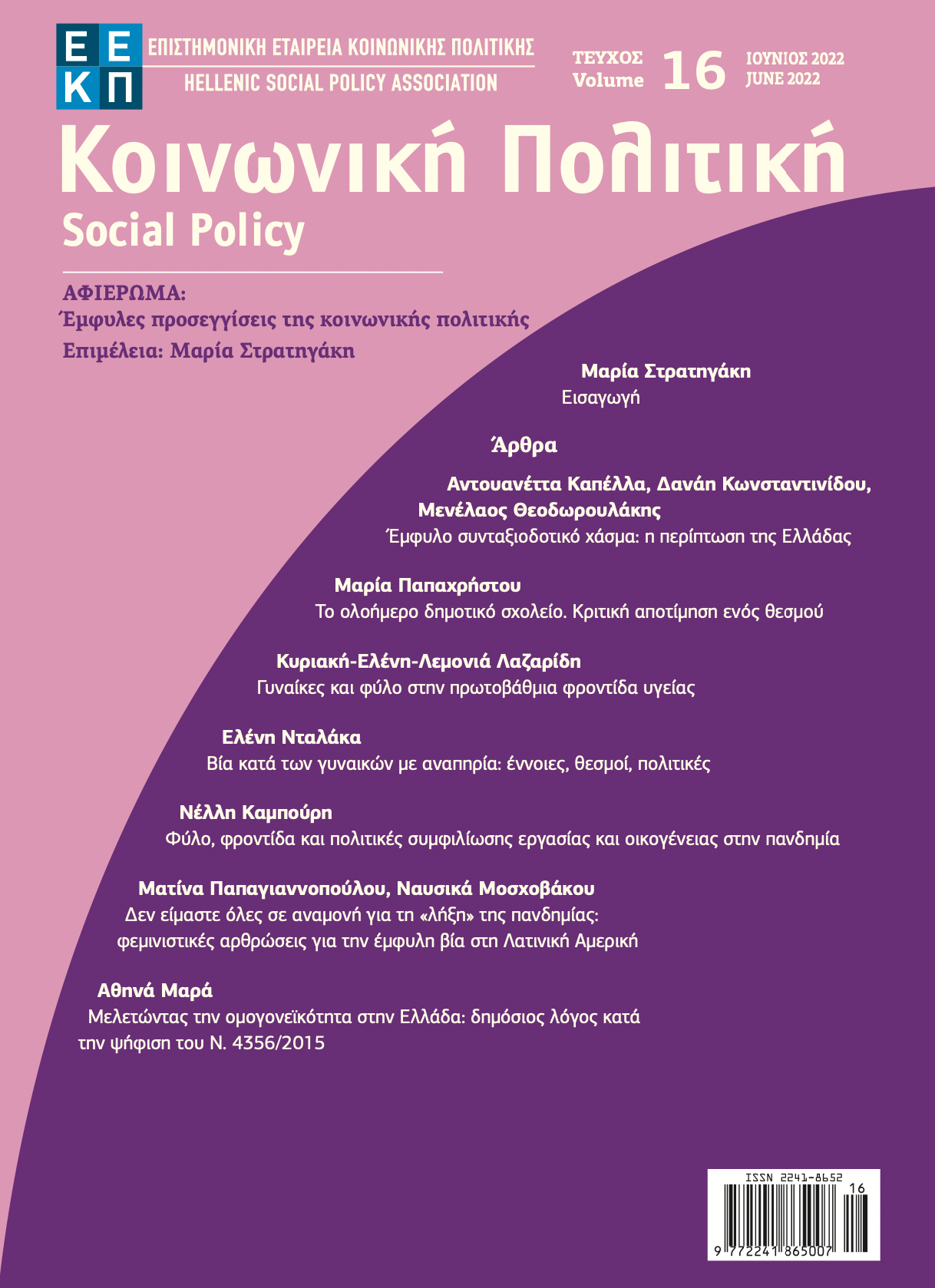Δεν είμαστε όλες σε αναμονή για τη «λήξη» της πανδημίας: φεμινιστικές αρθρώσεις για την έμφυλη βία στη Λατινική Αμερική

Abstract
The pandemic outbreak has brought to the forefront pre-existing rooted and interconnected gender inequalities, intersected with systems of oppression and vulnerability. Under these circumstances, gender-based violence disproportionately affected those who were already most likely to experience such incidents, and related reports rates were increased worldwide. In Latin America, where some of the highest rates of gender-based violence and femicides have been reported over the years, feminist movements, grass root collectives and social rights’ groups have opened up new ways of expression to address gender, racial, class and other social tensions that are identified at the social policy field. Beyond institutional frameworks, forms of collective feminist response, solidarity and resistance were forged through the invention and development of alternative practices, structures and services for survivors of gender-based violence. These ventures form a strong “we” that shifts from the (inter)local to the transnational level, and reveal new possibilities of collective feminist articulation against violence, poverty and exclusion.
Article Details
- How to Cite
-
Παπαγιαννοπούλου Μ., & Μοσχοβάκου Ν. (2022). Δεν είμαστε όλες σε αναμονή για τη «λήξη» της πανδημίας: φεμινιστικές αρθρώσεις για την έμφυλη βία στη Λατινική Αμερική. Social Policy, 16, 94–112. Retrieved from https://ejournals.epublishing.ekt.gr/index.php/eekp/article/view/30613
- Issue
- Vol. 16 (2022)
- Section
- Articles

This work is licensed under a Creative Commons Attribution 4.0 International License.
Authors who publish with this journal agree to the following terms:
Authors retain copyright and grant the journal right of first publication with the work simultaneously licensed under a Creative Commons Attribution Non-Commercial License that allows others to share the work with an acknowledgement of the work's authorship and initial publication in this journal.
Authors are able to enter into separate, additional contractual arrangements for the non-exclusive distribution of the journal's published version of the work (e.g. post it to an institutional repository or publish it in a book), with an acknowledgement of its initial publication in this journal.
Authors are permitted and encouraged to post their work online (preferably in institutional repositories or on their website) prior to and during the submission process, as it can lead to productive exchanges, as well as earlier and greater citation of published work.


